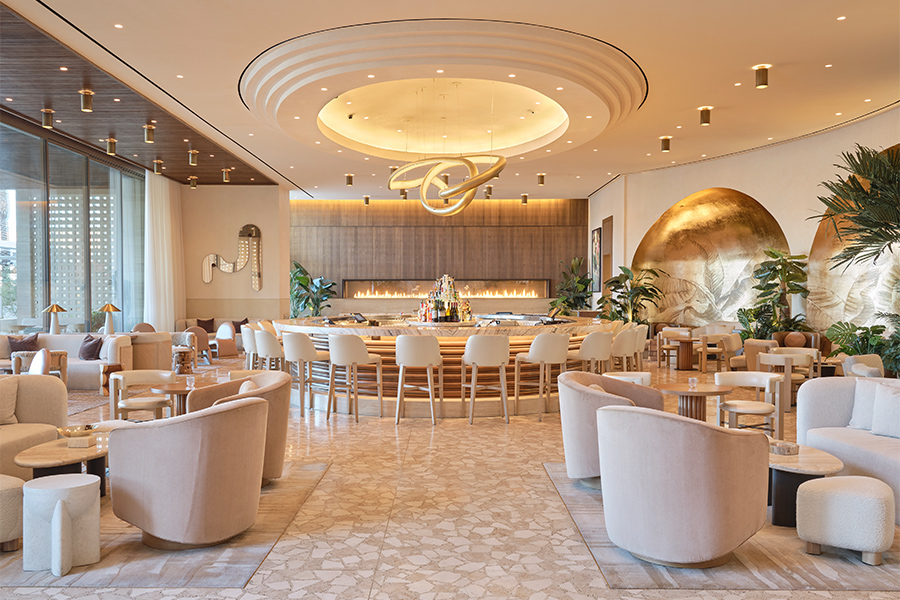With our industry, let alone the world, likely on the brink of permanent change, the eventual other side of the COVID-19 pandemic is going to require refreshed thinking as business slowly goes back to some semblance of normal. Conversations in hospitality are undoubtedly going to steer toward wellness for the foreseeable future, and it’s going to take the village that is our design community to make guests feel safe in spaces foreign to them again.
One such voice raising her hand early is Karen Pearse, owner of New York–based surfaces company Karen Pearse Global Direct, which recently launched the Protect Collections. Each of the porcelain tiles within the new line are constructed using a technology that kills 99.9% of bacteria and viruses. “We see the effects of an increasingly interconnected world,” says Pearse, who also operates offices in Europe and Asia. “Health and safety are growing concerns.”

Partnering with antimicrobial solutions company Microban, the pathogen-killing technology is integrated into the porcelain before it is fired in the kiln, ensuring that protection will last the entire life of the tile. Silver ions are employed to block the metabolism of bacteria, preventing it from growing and killing 99.9%, while also resisting viruses, without the need for UV rays (as is required in similar titanium dioxide products).
“In the midst of the pandemic, we are seeing a very high percentage of clients coming to us for ways to make their projects healthier,” Pearse says. “[These collections] not only kills viruses and bacteria, but make it easier to clean.”
Prior to the pandemic, the collections were slated for an early 2020 release, but the COVID-19 outbreak makes it even more relevant than Pearse anticipated. The technology, she says, can easily be applied to almost all hospitality public areas—from bathrooms and spas to the lobby bar. Beauty, then, was still an important part of this functional concept. It was important that the porcelain tiles were “nuanced representations of the materials they emulate,” which include wood, marble, and stone. “Antimicrobial does not have to mean that something is only utilitarian,” she says.

For more COVID-19-related news from HD, click here.



